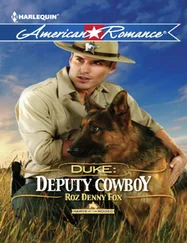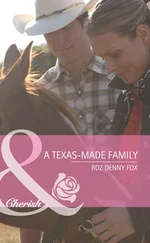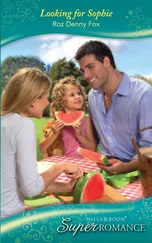That he spent too damned much time involved in business, Cole decided as he punched in the sequence of numbers.
The phone rang repeatedly. He was ready to hang up when a sleepy voice answered. “Cicely?” he said. “Sorry, did I wake you? Who? Cole. Come on, it hasn’t been that long since we talked. No, I’m not calling from Italy. I’m in the States. Right here in California, to be exact. At my grandfather’s place out near the Salton Sea. He passed away.” Swallowing hard, Cole listened to her conventional murmurs of sympathy.
Between yawns she asked when he’d be back in Hollywood.
“I’m building a golf course in Yaqui Springs. I called to see if you’ll drive out for the weekend…Oh, you have plans for Saturday? An audition? Well, come afterward,” he said. “We have blue sky and clean air. I’ll cook all the meals,” he promised. Cicely hated to cook. Cole sensed the moment she began to weaken. “Good. Good. Try to get here before dark, or you may miss the road.” He gave directions, then listened to her grumble. “It’s not the back of beyond, Cicely. But it is secluded,” he added, his voice husky with longing. “You’ll love Yaqui Springs.”
After hanging up, Cole leisurely finished his beer. Then he strolled into the kitchen to take stock of his cupboards. Tomorrow, first thing, he’d hire someone to come in and clean. He wanted everything perfect. Dinner on the screened porch. Candlelight, wine—the whole shebang. Cicely counted calories and fat grams, but he made a pretty fair Mediterranean pasta, which he figured she’d find acceptable. He reached for another beer. Did Mack’s General Store carry things like feta cheese and angel-hair pasta?
Wondering that brought Cole full circle to the one person he’d been trying to forget. Tibby Mack. Striding to the window, he peered out. The fool woman’s house was still lit up like Christmas. How many of those damned tabloids did she print?
Mood greatly deteriorated, Cole dumped the rest of his beer down the drain. Snapping off the lights, he made his way to bed. The avid golfers of Yaqui Springs wouldn’t make any of their decisions about the course based on one small article, he reasoned. All she was doing was spinning her wheels. He almost felt sorry for her.
TIBBY HAD FOLDED the last newsletter and was carting the final batch out to her car when Cole O’Donnell’s house went black. My, look how quickly she’d begun to think of it as Cole’s house, considering that it’d belonged to Yale for as long as she remembered.
Had Cole found a copy of the note his grandfather had signed giving her that wedge of land? Tibby frowned. What if neither of them turned up a copy? Then Cole could stir up a lot of trouble. She was afraid he’d like nothing better.
Tired though she was, Tibby decided to search her grandmother’s papers. An hour later she closed her eyes and rubbed at the insistent ache attacking her shoulders.
Lara Mack kept records. She kept everything. It was just that nothing was in any kind of logical order. Important papers were thrown in drawers. Some were boxed but not labeled. Others had been tossed haphazardly into expanding folders. Tibby uncovered what amounted to a couple of years’ worth of correspondence between her grandmother and the office of the postmaster general. Mostly letters concerning the feasibility of establishing a postal center in Yaqui Springs. Lara’s theme—Tibby laughed over the unintended pun—was that driving approximately forty miles into Brawley every day to pick up mail constituted a hardship for senior citizens.
There were applications and receipted filing fees that Grandmother Mack had paid out of her own pocket. From all indications, she had worked harder than anyone to bring postal service to Yaqui Springs. And Tibby intended to do her level best to keep it there. Maybe she should suggest dedicating the building to her grandmother. Yes, that would rally the residents. Why hadn’t she thought of it sooner?
She carefully gathered all the papers she’d found. Before the week ended she’d carve out time to drive to the courthouse and check on deeds. She’d call on her grandmother’s lawyer, too; it couldn’t hurt to pose a few questions regarding where she stood legally. His office was in Brawley. Yaqui Springs had no lawyers—or any other kind of professionals, either.
Slogging through her normal nightly routine, which consisted of little more than brushing her teeth and washing her face, Tibby crawled into bed and lay for a long time listening to the creaks and groans of the old house settling. She felt a wave of loneliness and stared into the darkness, weighing again the pros and cons of getting a dog for company. Not that she was afraid to stay alone. In spite of Cole’s lecture, she’d never felt nervous in this house. But every time she cared for Ariel’s hounds, she enjoyed talking to them. They’d cock their heads to one side and woof a time or two as if responding. Her next trip into Brawley, she’d go by the animal shelter and just look at dogs.
The alarm shattered the stillness, rousing Tibby from a pleasant dream—an unreal dream in which she and Cole O’Donnell were drifting around the Salton Sea in, of all things, her ancient canoe. Lord, it was pitch-black out. She reached over and shook the small alarm clock. Then she remembered. The newsletter. She wanted to deliver it early. She yawned. It seemed as if she’d just gotten to sleep.
Tibby dragged herself into the shower. The water, a bit on the chilly side like Grandmother Mack had always advocated, perked her right up.
Once she went outside and saw that a faint moon and a few stars still shone in the sky, she decided her moped might make less noise. It took only moments to transfer the stacks of folded’ papers to her saddlebags.
When she returned from making a circuit of the sleeping town, golden fingers of sun had begun to brighten the eastern sky. Her sixth sense told her that everything was going to work out to her advantage,
By seven o’clock it was abundantly clear that her sixth sense needed a complete overhaul. The early-morning golfers, who took coffee in her alcove before they headed to Bogey Wells to tee off, were embroiled in arguments with Winnie’s band of moped travelers. Ladies who rarely if ever saw the sun rise—except for today.
“Winnie, dear,” Joe Toliver said, sounding terribly condescending, “surely you didn’t think Cole would just sink cups out among the sage and call it a golf course. Naturally he has to clear the land.”
His wife stood her ground. “Frankly, when we signed the petition, I had other things on my mind—if you recall,” she snapped. “Tibby brings up a good point in her article. What provisions have you men made for preserving our wildlife?”
“What wildlife?” broke in Fred Feeny. “Snakes and field mice?”
Winnie pursed her lips. “You know very well that on our nature hikes we’ve seen coyotes, rabbits and ground squirrels. Even gray fox and bobcats.”
“Big deal.” Pete Banks snorted. “Anza-Borrego Desert State Park is only minutes away. Those animals will find homes quick enough.”
His wife, Justine, normally a pacifist, elbowed her way into the fore. “Clients ask for paintings of our desert chaparral. Who’d buy a painting of a golf course? Why does Cole need so much land?”
Pete gave her a cup of coffee and pointed her toward the door. “For God’s sake, Justine, a top-notch eighteen-hole golf course takes two hundred acres. Would you rather he sold out to one of the truck farmers in the Imperial Valley? Then we’d stare at miles of tomatoes or dates or whatever.”
“I assumed the golf course would be for those of us who already live here. In her editorial Tibby says if Cole advertises, we might have to contend with an influx of snowbirds. What if they decide to stay?”
Читать дальше












